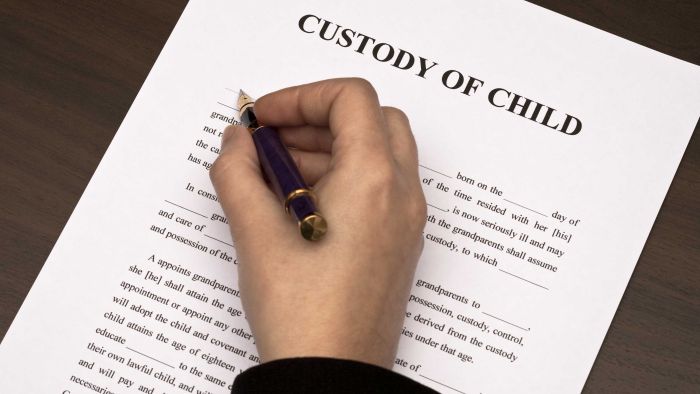
International Custody
Child custody battles are difficult to settle, even for families under normal circumstances. Throw in a couple passports, international job offers, or a few competing citizenships, though, and things get even more interesting.
In a modern world full of ever-shrinking borders and broadening horizons, international custody is becoming more and more commonplace. Hence, if you’re sitting there wondering: “Who gets custody if my spouse or I live internationally?” then you’re far from alone.
International child custody disputes happen every day, and—while slightly more complicated than the regular variety—federal courts and international treaties have already laid out a clearly established set of guidelines for California courts to follow in these situations.
Here’s what those laws look like, how they’re applied in California, and what the team at Maples can do to help resolve your international custody dispute.
International Custody: The Basics
International custody refers to child custody disputes between parents with competing nationalities. This could be because of differing citizenships, international job opportunities, long term travel, immigration, student or work visas, or a number of other scenarios.
In these situations, if both parents recognize the authority of a United States court to decide matters, then there really isn’t an issue, and the case will proceed more or less like a normal custody dispute. Where problems arise, however, is when one parent raises a jurisdictional challenge.
For these matters, California judges are bound to follow the rules and guidelines set down by federal law and international agreement. (This is because—as a state court—California does not have the power to negotiate with foreign courts on its own.)
In the United States, there are two main bodies of law that govern international custody, and they are:
- The Hague Convention—an international treaty that deals primarily with international child abduction (especially where parents are involved), and provides judicial protocol for returning a child to their home country for custody resolution.
- The Uniform Child Custody Jurisdiction and Enforcement Act (UCCJEA)—a federal law that helps state courts determine who has jurisdiction, and requires California courts to follow the laws of a child’s home country, if it’s determined that the U.S. does not have jurisdiction.
Hence, when presented with an international custody case, the first thing California courts will do is to see if the country in question has signed on to the Hague Convention.
1. The Other Country is NOT Part of the Hague Convention
If the country in question has not signed the Hague Convention treaty, then before anything else, the court will need to determine who has jurisdiction over the case. In California courts, this determination is made using the UCCJEA.
Under the UCCJEA, a child’s “home” is wherever they have lived during the six months immediately prior to the child custody dispute.
If it’s determined that the child’s home is California, then the court may apply the other country’s laws during the dispute, but aren’t obligated to (and especially not if those laws violate human rights).
If, on the other hand, the other country is their child’s home, then the U.S. will be required to make custody decisions based on that country’s laws (or, according to the UCCJEA, whichever has ultimate jurisdiction).
2. The Other Country IS Part of the Hague Convention
If, on the other hand, the country in question has signed onto the Hague Convention, then the Convention is only triggered if the child has been wrongfully abducted from their home country (or, “habitual residence”).
Here, the country who initiates a claim has two options. They can either: 
- Demand the immediate return of the child; or,
- Request an arrangement for the other parent to have continued access to their child.
The problem is, even when both countries have agreed to the Convention, foreign courts don’t always see eye to eye, and will sometimes refuse to comply. This refusal is exasperated by the fact that there aren’t any real consequences for not following the Convention.
Hence, if you’re worried about an impending divorce that involves international custody, it’s critical to talk to your attorney immediately, just in case you need to file a temporary order.
International Custody and Move Away Requests
Sometimes the court gets an international move away request after a divorce is finalized.
A move away request is essentially a petition for custody modification, which will allow a custodial parent to relocate their child outside the specified geographic boundaries of their parenting agreement.
Like in a regular move away request, your judge will weigh the merits of different factors, in order to determine what scenario will be in your child’s best interest. These include:
- The distance of the move.
- The reasons for the proposed move.
- The child’s age.
- The child’s wishes (if old enough).
- The child’s need for stability and continuity.
- The child’s relationship with both parents.
- The relationship between the two parents (including how each communicates, and if both are willing to facilitate the child’s relationship with the other).
- The current custody arrangement (including who the custodial parent is, and by how much).
Additionally, when a move will take a child outside of the United States, California courts will pay particular attention to:

- The cultural differences between what the child has here, and what they’d experience there (and how that disruption would affect them).
- The distance of the move, and what it would mean in terms of travel expenses, jet lag, time difference, and obstruction of contact with the child’s other parent.
- Any ongoing jurisdictional problems with the other country (say, for example, whether or not the country was part of the Hague Convention).
Because of the disruption it poses to the child’s life—as well as the challenges it would pose for the child’s other parent—international move away requests are much more difficult to approve than state to state moves.
Parental Kidnapping
Unfortunately, parent kidnappings are a very real, very common occurrence—especially where international custody is concerned. In fact, it’s estimated that over 90% of international kidnappings are carried out by a child’s parent, and these abductions can happen at any time before, during, or after divorce proceedings.
When this happens, the Hague Convention is triggered, and will require the country in question to return the “wrongfully removed” child back to their home country for custody resolution.
The problem is, that—even when both countries have signed the Hague Convention—it’s always more challenging to get a child back, once they’re in another country. And those challenges get worse, the longer the absence drags on.
Hence, if you’re worried your ex might try to remove your child from the country without consent, it’s vital to contact your attorney, and notify officials. In some situations, a temporary order can be filed to ensure they cannot flee with your child.
International Custody Attorneys in California
While international custody isn’t nearly as straightforward as your regular, run-of-the-mill variety, with the right attorney, this process doesn’t have to be as scary as you might be thinking. The key is to act early.
If you have questions about international custody in California, and how these laws might apply to your situation, don’t wait. Call the Maples team at (209) 989-4425, or get in touch online, and let us help protect your child’s best interests in these important matters.
















